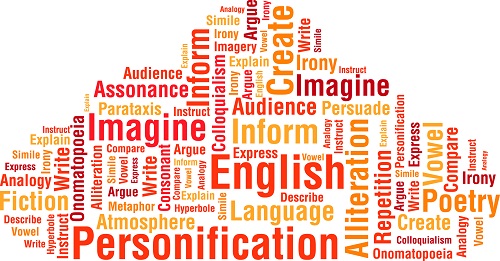The chief examiner remarked this year on the need for students to focus on interpretation as a key skill, helping students to infer meaning rather than purely summarise.
Put simply, this is the ability to talk about language rather than telling us about what is written. It’s the how and why rather than the ‘this means that’. It’s also the difference between lower and higher grade boundaries.
Some students will naturally be curious and through this curiosity will be able to interpret why writers have chosen their words and how this creates an image or situation. Others will be able to tell us what these words show. The best will grasp these chosen phrases in their metaphorical hands and mull them over, discussing their purpose and interpreting their meaning in a way that’s personal to their own understanding.
But as teachers, how do we show our classes the difference between summarising and interpreting?
I like to start with an exercise such as this.
- Choose a passage, page or key quote. Here I’ve used the first page of Heroes by Robert Cormier: ‘My name is Francis Joseph Cassavant and I have just returned to Frenchtown in Monument and the war is over and I have no face’
- Introduce the question, ‘What does this opening sentence tell us about Francis?’
Example of a summarising response:
We can see here that the man has been to war and has returned because he has been hurt, ‘I have no face’. We know that he lives in Frenchtown. He tells us his whole name but we don’t find out exactly what has happened to him. Student A
Example of an interpreting answer:
The opening sentence is designed to shock us. It quickly establishes the setting and shows us that the book will be in first person. It holds a sense of mystery leaving us to wonder both why he has no face and why he introduces himself using his full name as if he is in an interview or to let us know him better. He uses ‘and’ instead of punctuation in this sentence which suggests that he is trying to get the words out quickly, or that he is used to having to say them over and over, perhaps to explain what has happened to him. It is unusual to say ‘ I have no face’, it makes me wonder whether that’s literally true and to what extent his injuries are, or whether he is suggesting he is some kind of coward and is ‘faceless’. Student B.
As you can see, there is a huge difference between the two responses and the mark that would be awarded. Interestingly, both students have the same predicted grade. One has a surface understanding and one is able to interpret. Student A is correct in everything they have said but has merely retold us what the sentence says then added the obvious statement that we don’t know what has happened to him. Student B thinks about why this is the opening sentence and notices that Francis is our authorial voice. He delves into why Francis would tell us about his face and the way in which the line is delivered which is a lovely detail to notice. He then notices the words ‘no face’ and links them to faceless and the idea of courage. To expand further he could have connected this idea of courage with the fact Francis went to war and the demands put upon him there, or indeed that he put upon himself.
But how do we as teachers encourage our pupils to interpret rather than summarise? By encouraging ways into the language by questioning it. We put that quote up on the IWB and we come at it in a variety of ways.
- Why is it important that this is the first sentence in the novel?
- What is Francis literally showing us?
- What is he metaphorically showing us?
- Is there any information that is hidden from us that we can prise out?
- What perspective are we reading this from? Does that make a difference to our reading experience?
- Can we trust Francis?
- Which word do you think is most important and why?
- Now summarise this sentence
- Now interpret it
- What is the difference?
Try again with another extract, following the example of the first sentence from a novel or piece of non-fiction. I like to use a selection from different genres, but this one from The Toy Makers by Robert Dinsdale is great:
‘If, at a certain hour on a certain winter night, you too had been wandering the warren between New Bond Street and Avery Row, you might have seen it for yourself. One moment there would be darkness…the next, the rippling snowflakes would part to reveal a mews you had not noticed before – and, along that mews, a storefront garlanded in lights…Lights like these captivate and refract the darkness. Lights like these can bewitch the most cynical of souls’
Here I would ask ‘How does the writer create a sense of atmosphere in the opening sentence?’ and again guide them through interpreting the language. If surface-level answers are given or a simple summarising response, challenge them with a second or third question to expand on what they are saying. Get them into the habit of questioning why words are used rather than what words are used; interpret don’t summarise. It should make a huge difference in the quality of their responses.
By Joanna Fliski
Joanna Fliski has taught English Literature and Language to 11-18-year-olds at an urban comprehensive secondary school for 10 years, she had the highest value added score for her students and was nominated for an outstanding teacher award. As well as teaching Drama and Media GCSE she was head of PSHE, trained teachers and is a behavioural specialist. Joanna currently teaches in primary schools in Bristol. She is also a freelance author, writing resources and teacher guides for the Cambridge IGCSE, creating schemes of work and contributing to a number of educational blogs.



